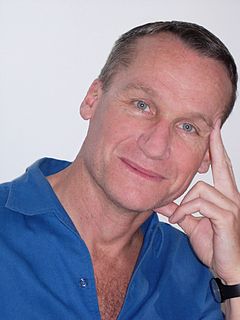A Quote by Peter Menzel
It's important to get a translator who will ask the questions in a sensitive and thoughtful way. Knowing the ethnicity issues, the tribal issues in some places...who your translator is can mean a lot.
Related Quotes
The translator has to be a good writer. The translator has to hear music too. And it might not be exactly your music because the translator needs to translate the music. And so, that is what you are hoping for: a translator who gets what you are doing but who also gets all the ways in which it won't work in the new language.
To me a translator is very, very important. If the fixer is also the translator, so much the better. I have known photographers who didn't speak the language and would work in a place for weeks without one, getting by on common sense and smiles. But how many situations did they miss because they couldn't talk to someone and get the back story on details, small daily life things, etc.
I think when it comes to the issues, I'd advise him to stick to the script. But, I mean, Donald Trump is going to have some very tough conversations and he's going to be talking about some very tough and complicated issues in all of the places that he visits.I think anytime a president does things that are humanizing, I think it's - it's good.




































